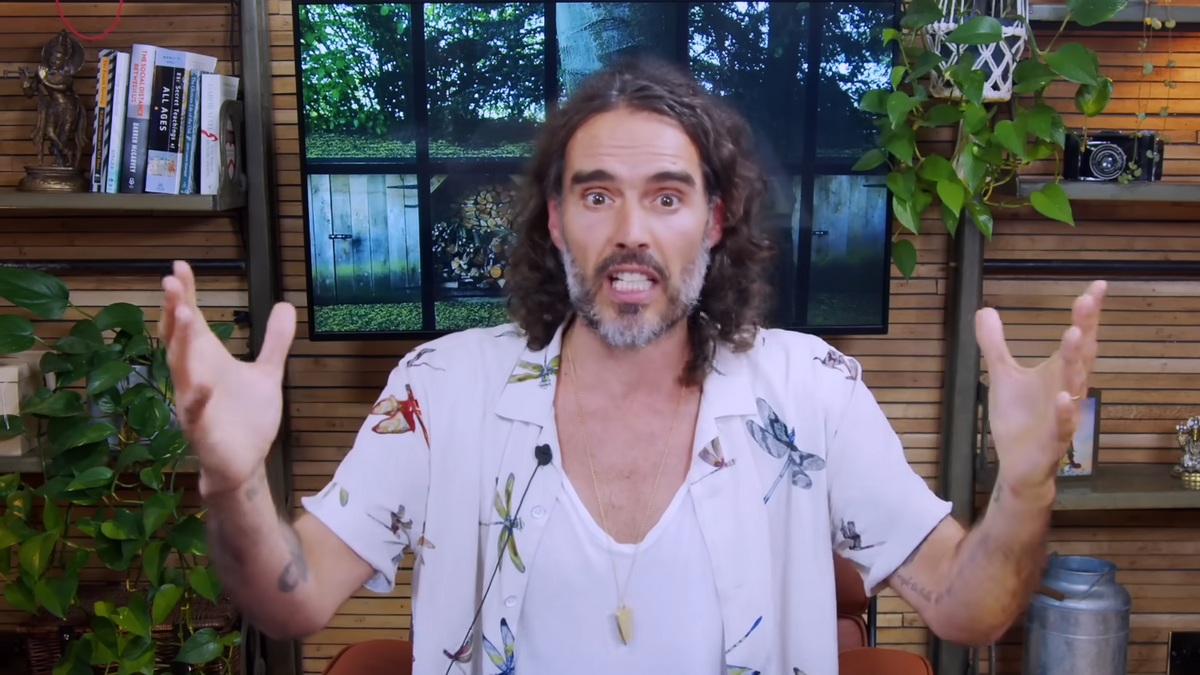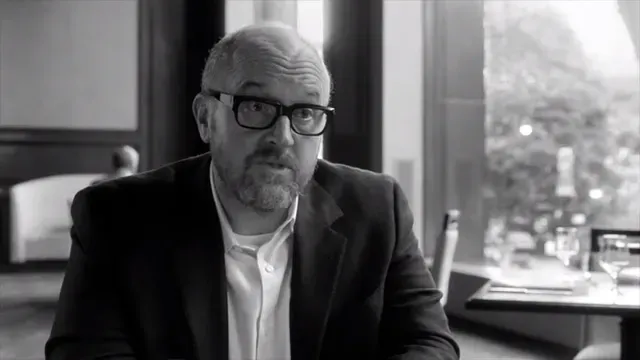Present Dangers
A few thoughts about the Russell Brand story.

Two pieces of business: one, you can currently get an annual subscription to Humorism for 25% off, or $45. If you like this newsletter, upgrading your subscription really goes a long way towards helping me write it; so does sharing it on social media and/or forwarding it to your friends. Two, I've removed the paywall from the essay I sent out a couple weeks ago about Shane Gillis, his history of very blatant racism, and the 9/11-, Sandy Hook-, and Holocaust-denying podcasters he's repeatedly platformed. You can read it here once you sign in to Ghost.
Yesterday the UK media outlets The Times, The Sunday Times, and Channel 4 Dispatches published a joint investigation into allegations of rape and sexual assault against the comedian Russell Brand. It’s a massive report based on extensive documentary evidence and interviews with hundreds of sources, well worth reading in full. The content, obviously, is highly disturbing:
As her taxi approached Russell Brand’s home, Alice remembers the driver begging her not to go inside. Recognising the destination, he had started to ask questions. Alice admitted she was 16 and still in school.
She says the driver replied that his daughter was the same age and entreated Alice: “Please, I’m asking you not to go in there, you could be my little girl, and I would want someone to do this for her.” He offered to take her home without charge, but Alice insisted she was fine. “He had just such a sad look in his eyes,” she recalls.
Alice, whose name we have changed to protect her identity, now realises that she wasn’t fine. During a relationship that lasted for about three months when Brand was a BBC radio presenter, she says that he referred to her as “the child” and alleges that he became increasingly controlling, and then emotionally and sexually abusive.
One common response I’ve seen to this story is that it contextualizes Brand’s recent pivot to right-wing crankery: that he seems to have intentionally cultivated an audience that would remain loyal to him once his true nature came to light. This seems apt, and it raises an unsettling question. What do we suppose is happening, exactly, in the vast swaths of the entertainment industry where proudly misogynist grifters have always performed for cultish audiences drawn to them precisely for their misogyny and conspiracism?
https://t.co/heBZYLxkhF pic.twitter.com/CJYTX8Hvnt
— Wagatwe Wanjuki 🇰🇪 🇧🇸 (@wagatwe) September 16, 2023
At the risk of repeating myself: this is why the cultural milieu we have come to define as “right-wing comedy"—a term I use to include grifter-pundits like Brand, who built his career as a comedian and still operates in comedy spaces—is everyone’s problem. The art form’s massive constituency of people who reflexively defend and even celebrate sexual violence is not a mere political or aesthetic phenomenon; it is a very real public safety issue. This distinction matters because political and aesthetic conflicts in the arts can theoretically be dealt with through speech, whereas threats to public safety require a material response. We cannot simply ignore comedians whose entire artistic project revolves around the hatred of women and expect them to fizzle out. They will carry on hating women, for audiences who also hate women, while we’re off pretending that people who possess this sort of hatred never act on it.

Neither sexual violence nor misogyny are exclusively right-wing problems, of course. The point Brand illustrates is that in our current media ecosystem, one side more reliably forgives and therefore enables abusers. This is the side that currently runs the comedy industry, as is plainly evident in the fact that nobody of any stature ever talks about it. After all the caterwauling and garment-rending about how cancel culture and MeToo would have a chilling effect on the art form, we can see now that the actual chilling effect was the one wielded by the people making this warning. Louis CK confessed to serial sexual assault six years ago. Today, nobody at his level of the industry has a word to say about his presence in their workplaces, despite the fact that he accidentally apologized to one of his victims for an act he committed on another person, someone he and everyone else have conveniently forgotten. The same is true of Chris D’Elia, who has continued touring nationally even after Rolling Stone reported this past May on allegations that he kept abusing women in the aftermath of his exposure in 2020. Each of these men is a menace, and not a single one of their peers seems to give a shit.

Maybe that’s not totally fair. Obviously there are plenty in comedy who give a shit, it’s just that doing something about it poses certain professional and financial risks. The problem is more accurately that live comedy’s ownership class, the people who run venues like the one where Russell Brand was reportedly “met by cheers” at a sold-out gig last night, are not moral actors. They will serve whomever’s paying them. In a world where digital platforms make it easy for extremists to find large followings and the already-famous to retain theirs, these venue owners—individuals, corporations, and state and local governments—have unbelievable power to determine the norms of our popular culture: what behavior is acceptable from entertainers and what isn’t; which beliefs are within the realm of civil discourse and which aren’t; whose voices deserve to be heard and whose can be ignored; whose safety matters and whose can be sacrificed.
Certainly they are not the only ones with this power. The owners of tech platforms have it too, and our society generally acknowledges as much. But in the live entertainment business, where no cancelled man has yet seen fit to quietly live out the rest of his days as a stay-at-home podcaster, it's venue owners who decide where the lines are. And their decisions are, by now, predictable. In this light we can see the proliferation of right-wing comedy as a form of class warfare. The reactionaries, the abusers, their friends and defenders and GamerGate-style fan hordes, they’re all a means of enforcing the conservative social order: whiteness and patriarchy.
A reminder that Daniel Sloss had a bit about sexual assault in one of his stand ups and how he wished he’d done something to stop his friend being raped. It’s powerful to see him come forward and stick to his word. #Dispatches pic.twitter.com/NWSBz1kMGs
— bef (@befbadbelly) September 16, 2023
Which is why it’s vital to recognize the public safety threat these people represent. That’s not to suggest every edgelord comedian is a sexual predator, although I do think there are plenty more out there, very few of whom will ever receive a years-long investigation by multiple news outlets. What I will suggest is this: once we accept that it's risky to publicly give a shit in an industry unconcerned with sexual violence, we should ask three questions before concluding that the risk is too high. One, what is the natural societal endpoint of millions of people bonding over their shared hatred of women? Two, what do we think is going on right now in their spaces, the spaces they created to be free of such petty orthodoxies as feminism and compassion? And three, what happens when one side fights a war and the other does nothing?
🎼 he’s a real ass dude 🎼
— Luis J. Gomez (@luisjgomez) September 16, 2023
Like you, I have no idea what happened. I do know that the standard can’t be anonymous claims you did something a decade ago with no evidence, and now we’re all supposed to convict you in our minds. When this insanity is the standard, people are going to skeptical of the claims.…
— Dave Smith (@ComicDaveSmith) September 17, 2023
Lol lmao I stand with Brand obviously https://t.co/BW9o3afTIp
— Anna Khachiyan (@annakhachiyan) September 16, 2023
